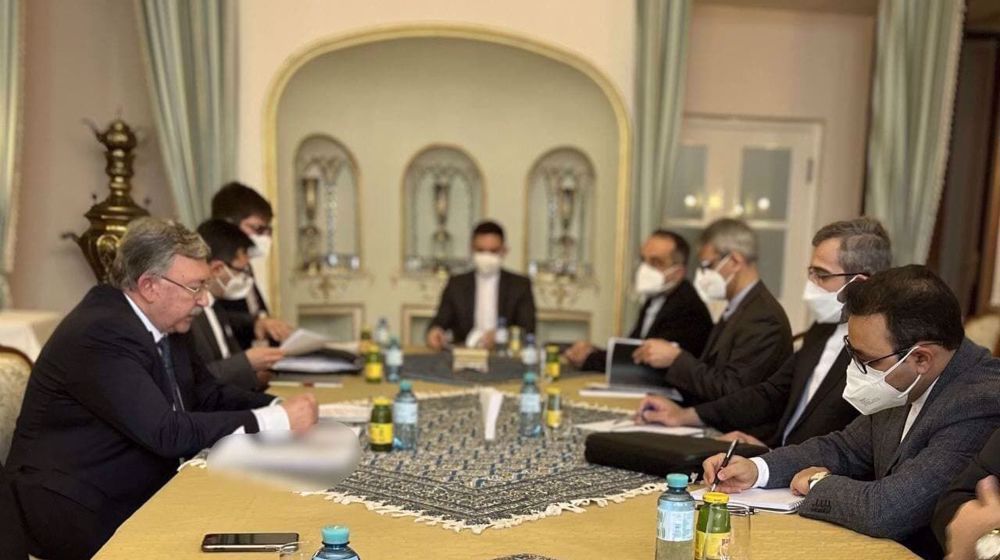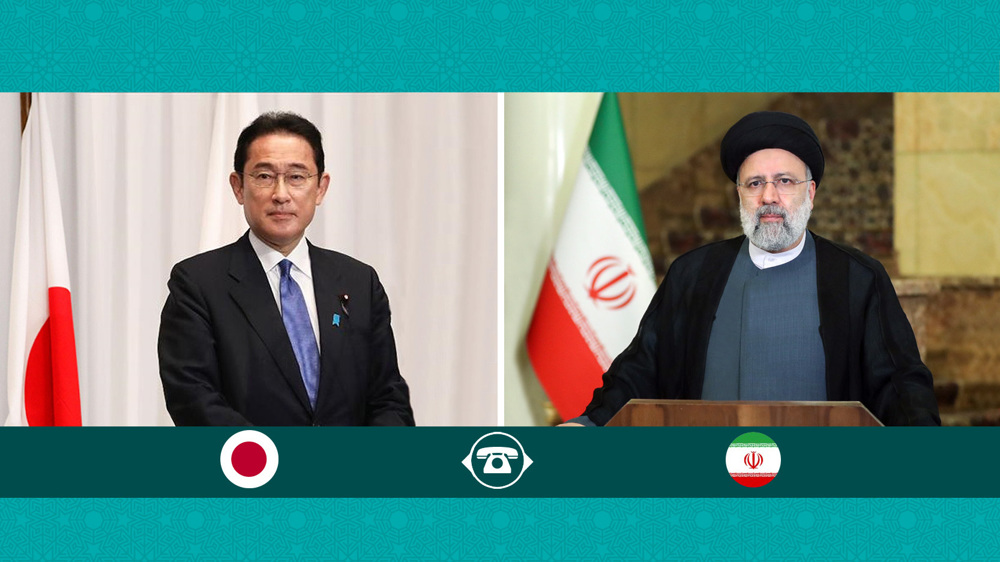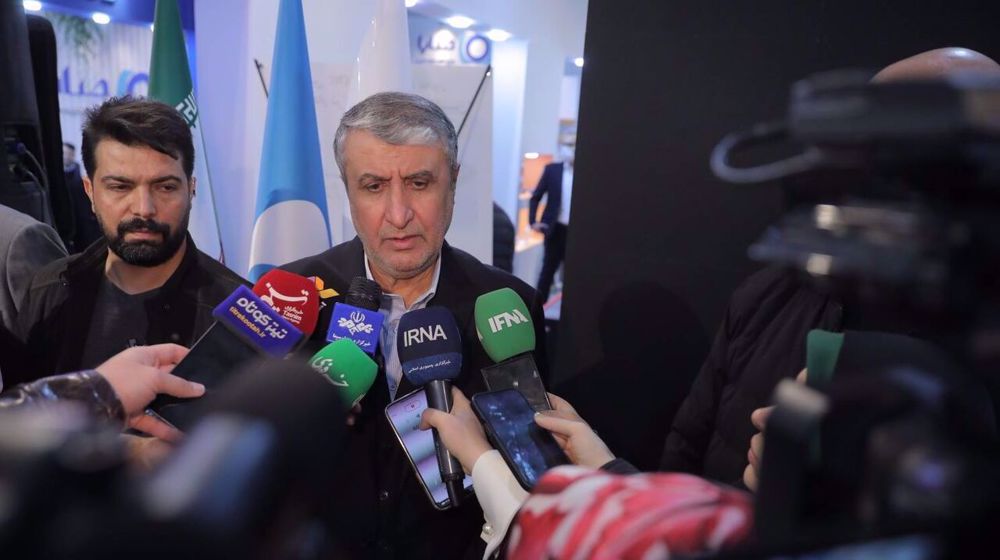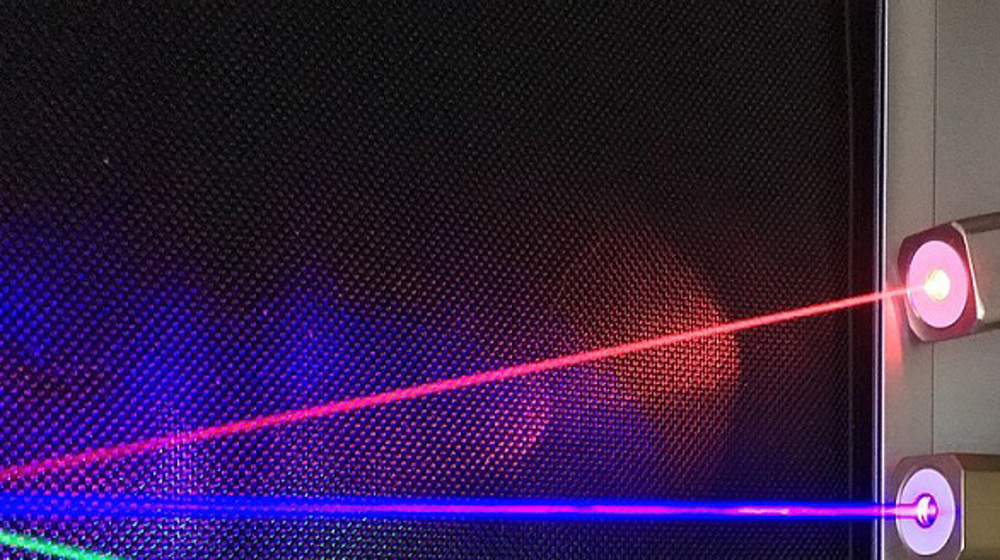Vienna talks: Top Iran, Russia negotiators discuss JCPOA revival in details
Top negotiators of Iran and Russia have held detailed talks in the Austrian capital of Vienna on possible ways to salvage the 2015 landmark deal, which was abandoned by the United States three years after its conclusion.
Iranian Deputy Foreign Minister for Political Affairs Ali Bagheri Kani and Russia’s Permanent Representative to International Organizations in Vienna Mikhail Ulyanov met on Saturday, the 35th day of the eighth round of the talks between Iran and the P4+1 group of countries in the Austrian capital to secure the revival of the agreement, officially known as the Joint Comprehensive Plan of Action (JCPOA), through bringing the US back to the deal.
In a tweet, Ulyanov pointed to his meeting with Iran's lead negotiator and said they "discussed in details the way ahead at the #ViennaTalks on #JCPOA."
Met with the chief negotiator of #Iran Dr. A. Bagheri Kani. We discussed in details the way ahead at the #ViennaTalks on #JCPOA. pic.twitter.com/NdgvByapj3
— Mikhail Ulyanov (@Amb_Ulyanov) February 12, 2022
The Iranian chief negotiator also on Saturday held a meeting with Enrique Mora, the European Union’s deputy foreign policy chief and head of the JCPOA Joint Commission.
Later in the day, Bagheri Kani also met with the Chinese envoy to the United Nations and other international organizations in Vienna, Wang Qun, who heads the country's negotiating team to the sanctions removal talks.
The top Iranian and Chinese negotiators discussed offers presented by the Iranian delegation to solve the outstanding issues.
A source close to the Iranian delegation in the Vienna talks says Tehran has put many offers on the table and encouraged the other side to come up with new proposals to resolve the outstanding issues.
In another tweet, the top Russian negotiator said he held separate meetings with US Special Envoy for Iran Robert Malley, the EU coordinator, and political directors of the three European parties to the JCPOA -- France, Germany and Britain.
Met with the #US Special Envoy for Iran Mr. Robert Malley. We discussed the most contentious issues which need to be settled at the #ViennaTalks on #JCPOA. pic.twitter.com/xKxhyZN1rf
— Mikhail Ulyanov (@Amb_Ulyanov) February 12, 2022
"We discussed the most contentious issues which need to be settled at the #ViennaTalks on #JCPOA," Ulyanov tweeted, referring to his meeting with Malley.
Envoys from Iran and the five remaining signatories to the deal -- Britain, France, Russia, and China plus Germany -- have been holding negotiations in the Austrian capital for 10 months with the aim of reviving the JCPOA.
The two sides have bridged some gaps since the talks began last year, but differences remain, especially on the issue of US sanctions. Tehran wants all sanctions imposed by the administration of former US President Donald Trump removed and says the issue is its red line.
On Friday, the head of the Iranian and Chinese negotiating teams met to discuss JCPOA revival. Bagheri Kani also exchanged views with Mora.
The three working groups on sanctions removal, nuclear issues and sequencing the implementation of a probable agreement met also on Friday to address the remaining outstanding issues.
Head of the EU delegation to international organizations in Vienna Stephan Klement also said in a tweet on Friday that intensive consultations continue between Iran and the P4+1 group of countries "as time is of essence."
Klement, who also serves as special advisor to the European External Action Service (EEAS) on the Iranian nuclear issue, added that he chaired a meeting of both sides' working group this morning.
"Our aim remains to ensure full implementation of all aspects of the #JCPOA," he tweeted.
In a phone call with Japanese Prime Minister Fumio Kishida on Wednesday, Iranian President Ebrahim Raeisi said the current US administration’s adherence to the failed policies of its predecessor with regard to Iran is the main obstacle to making “acceptable progress” in the Vienna negotiations.
“The US administration’s clinging to the failed policies of the former administration is the major obstacle to making acceptable progress in the negotiations,” Raeisi stated.
Trump unilaterally left the JCPOA in May 2018 and re-imposed the anti-Iran sanctions that the deal had lifted. He also placed additional sanctions on Iran under pretexts irrelevant to the nuclear case as part of his “maximum pressure” campaign.
In May 2019, following a year of strategic patience, Iran decided to roll back some of the restrictions on its nuclear energy program, resorting to its legal rights under the JCPOA, which grants a party the right to suspend its contractual commitments in case of a non-performance by the other side.
The administration of US President Joe Biden says it is willing to compensate for Trump’s mistake and rejoin the deal, but it has retained the sanctions as leverage.
US Department of Justice releases millions of Epstein files, then pulls pages citing ‘rape’ by Trump
VIDEO | 44th Fajr Theater Festival underway in Tehran
VIDEO | Press TV's news headlines
VIDEO | Oil workers' march in support of reform of Venezuela's main oil law
VIDEO | Malaysians hold rally in front of Iranian embassy to condemn US, Israel threats
Israel to partially reopen Rafah border crossing after long closure
FM says Iran open to talks ensuring its legitimate rights and based on mutual respect
Rights groups in Australia call on authorities to arrest Israeli president











 This makes it easy to access the Press TV website
This makes it easy to access the Press TV website